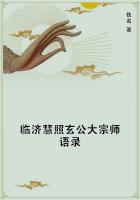That luncheon took its place in Mary-'Gusta's memory beside that of her first supper in the house at South Harniss. They were both memorable meals, although alike in no other respects. Mrs. Wyeth presided, of course, and she asked the blessing and poured the tea with dignity and businesslike dispatch. The cups and saucers were of thin, transparent China, with pictures of mandarins and pagodas upon them. They looked old-fashioned and they were; Mrs. Wyeth's grandfather had bought them himself in Hongkong in the days when he commanded a clipper ship and made voyages to the Far East. The teaspoons were queer little fiddle-patterned affairs; they were made by an ancestor who was a silversmith with a shop on Cornhill before General Gage's army was quartered in Boston. And cups and spoons and napkins were so clean that it seemed almost sacrilegious to soil them by use.
Captain Shadrach did not soil his to any great extent at first. The Captain was plainly overawed by the genteel elegance of his surrounding and the manner of his hostess. But Mr. Keith was very much at ease and full of fun and, after a time, a little of Shadrach's self-consciousness disappeared. When he learned that grandfather Wyeth had been a seafaring man he came out of his shell sufficiently to narrate, at Keith's request, one of his own experiences in Hongkong, but even in the midst of his yarn he never forgot to address his hostess as "ma'am" and he did not say "Jumpin Judas" once.
After luncheon Mr. Keith and the Captain left the house together.
"Goin' to attend to that little mite of business I spoke to you about, Mary-'Gusta," explained Shadrach, confidentially. "We'll be back pretty soon. I cal'late maybe you'd better wait here, that is," with a glance at Mrs. Wyeth, "if it'll be all right for you to."
"Of course it will be all right," declared Mrs. Wyeth promptly. "I shall be glad to have her."
"Thank you, ma'am. If she won't be in the way I--"
"If she were likely to be in the way I should say so. She won't be."
"Yes--er--yes, ma'am," stammered Shadrach. "Thank you, ma'am."
When he and Mr. Keith were out of the house he drew a long breath.
"Judas!" he observed, feelingly. "Say, that cousin of yours don't waste any words, does she? When it comes to speakin' what's in her mind she don't fool around none. She's as right up and down as a schooner's fo'mast."
Keith laughed heartily. "Emily is blunt and outspoken," he said.
"She prides herself on that. But she is as square as a brick. She never says one thing to your face and another behind your back."
"No, I--I judge that's so. Well, that's all right; I ain't got any objections to that way of talkin' myself. But say, if every woman was like her there wouldn't be many sewin' circles, would there?
The average sewin' circle meetin' is one part sew and three parts what So-and-so said."
When the little mite of business had been transacted and the pair returned to the Wyeth house they found Mrs. Wyeth and Mary-'Gusta awaiting them in the parlor. The girl had the feeling that she had been undergoing a rather vigorous cross-examination. Mrs. Wyeth had not talked a great deal herself and her manner, though brusque and matter of fact, was kind; but she had asked questions about Mary-
'Gusta's home life, about Captain Gould and Mr. Hamilton, about school and friends and acquaintances. And her comments, when she made any, were direct and to the point.
She and Mr. Keith exchanged looks when the latter entered the room.
Keith raised his eyebrows inquiringly. She nodded as if giving emphatic assent to his unspoken question.
Shadrach and Mary-'Gusta left the house soon afterward. While the Captain and Mr. Keith were whispering together in the hall, Mrs.
Wyeth bade the girl good-by.
"I like you, my dear," said the lady. "You seem to be a sweet, sensible girl, and I don't meet as many of that kind nowadays as I could wish. I am sure we shall be good friends."
"And WHAT did she mean by that?" demanded Mary'-Gusta, as she and the Captain walked along Pinckney Street together. "Why should we be good friends? Probably I'll never meet her again."
Shadrach smiled. "Oh, you can't always tell," he said. "Sometimes you meet folks oftener'n you think in this world."
Mary-'Gusta looked at him. "Uncle Shad," she said, "what does all this mean, anyway? Why did you go to her house? And what was the mysterious business of yours with Mr. Keith?"
The Captain shook his head. "We've got a hen on, same as I told you," he declared. "When it's time for the critter to come off the nest you'll see what's been hatched same as the rest of us. How'd you like that Mrs. Wyeth? Had a pretty sharp edge on her tongue, didn't she?"
Mary-'Gusta considered. "Yes," she answered; "she was outspoken and blunt, of course. But she is a lady--a real lady, I think--and I'm sure I should like her very much when I knew her better. I think, though, that she would expect a person to behave--behave in her way, I mean."
"Judas! I should say so. Don't talk! I ain't felt so much as if I was keepin' my toes on a chalk mark since I went to school. I don't know what her husband died of, but I'll bet 'twasn't curvature of the spine. If he didn't stand up straight 'twasn't his wife's fault."
Mary-'Gusta's curiosity concerning the mysterious business which had brought them to the city became greater than ever before it was time to take the train for home. Apparently all of that business, whatever it might be, had been transacted when her uncle and Mr. Keith took their short walk together after luncheon. Captain Shadrach seemed to consider his Boston errand done and the pair spent half of the hour before train time wandering along Tremont and Washington Streets looking into shop windows, and the other half in the waiting room of the South Station.















